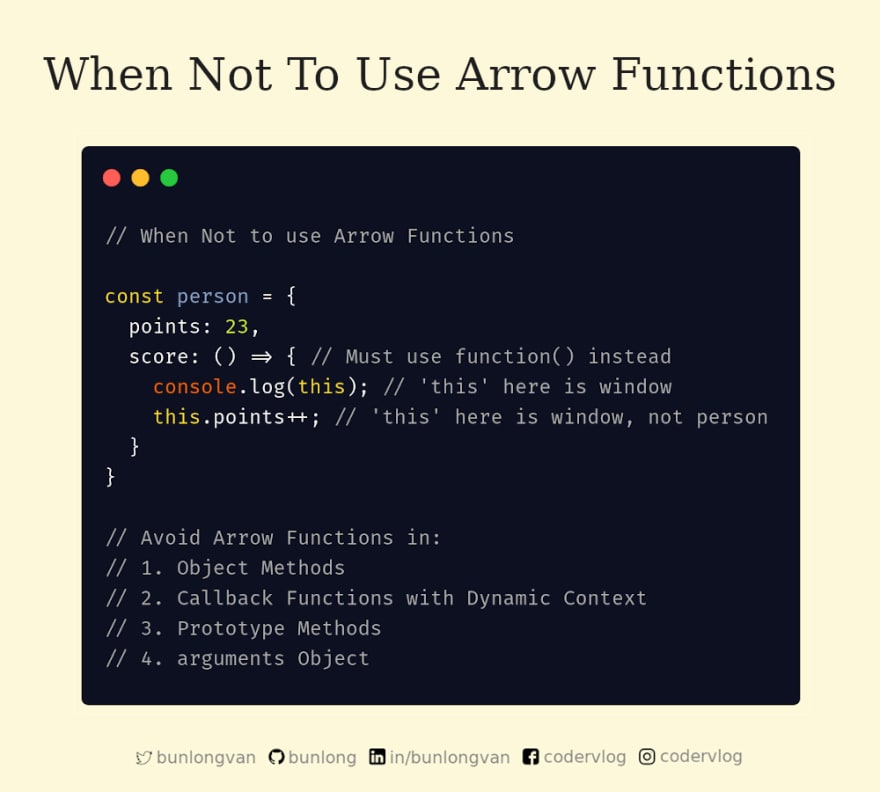
When Not to use Arrow Functions
Here are some instances where you probably should avoid using arrow functions:
1. Object Methods
const person = {
points: 23,
score: () => {
console.log(this); // 'this' here is window
this.points++; // 'this' here is window, not person
}
}
person.score();
console.log(person.points); // 23
When you do console.log(person.points) the result should be 24 but it’s still 23.
Why? because this is always scoped to the parent which is the window in this case (it’s not bound to anything else).
You must use regular function instead.
const person = {
points: 23,
score: function() {
this.points++; // 'this' here is person
}
}
person.score();
console.log(person.points); // 24
2. Callback Functions with Dynamic Context
const button = document.getElementById('myButton');
button.addEventListener('click', () => {
console.log(this); // 'this' here is window
this.innerHTML = 'Clicked Button'; // 'this' here is window, not button
});
When you click on myButton it won’t actually work.
Why? because this is not bound to the button, but instead bound to its parent scope which is the window in this case.
You must use regular function instead:
const button = document.getElementById('myButton');
button.addEventListener('click', function() {
console.log(this); // button
this.innerHTML = 'Clicked Button'; // 'this' here is button
});
3. Prototype Methods
class Person {
constructor(points) {
this.points = points;
}
}
Person.prototype.info = () => {
console.log(this); // 'this' here is window
return `Points: ${this.points}`; // // 'this' here is window, not Person
};
const me = new Person(24);
console.log(me.info());
When you do console.log(me.info()) it won’t actually work.
Why? Why? because this is not bound to the Person, but instead bound to its parent scope which is the window in this case.
You must use regular function instead:
class Person {
constructor(points) {
this.points = points;
}
}
Person.prototype.info = function() {
console.log(this); // Person
return `Points: ${this.points}`; // // 'this' here is Person
};
const me = new Person(24);
console.log(me.info());
4. arguments Object
const logArgument = () => {
console.log(arguments[0]);
};
logArgument('Hi!'); // ReferenceError: arguments is not defined
It won’t actually work.
Why? because arrow functions do not automatically bind their own arguments value, and that there was no reference to arguments in logArgument’s outer scope, so the compiler throws a reference error.
You must use regular function instead:
const logArgument = function () {
console.log(arguments[0]);
};
logArgument('Hi!'); // Hi!
Summary
Arrow functions are terrific, but not suitable for all situations. Places where they will not only help, but cause you trouble.
Arrow functions doesn’t replace regular functions.
Thanks for reading ❤
Say Hello! Twitter | Github | LinkedIn | Facebook | Instagram